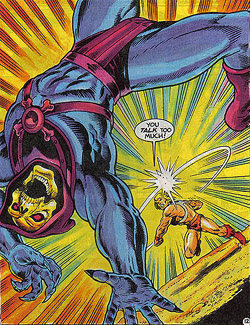The Hard Bounce
We live in a world that instigates relentlessly the marvel of change in each of the moments we survive. There is a way in which we all read even the concept of change itself, so similar to other things that merely undergo the overwhelming impact of change.
Most changes occur as a reaction to the ever poignant concern for survival. And some other changes are an expression of the self.
This story will tell you the rest. Any insinuations about the meaning the story suggests are welcome.
Once a young boy was walking back home from his new school. His father was a government employee and so his family had to change places according to the transfers the man received in his service.
There was an old building the boy had to cross to reach the turn in the road to his house. Usually the area was deserted with not a single sign of human beings present nearby.
The boy heard foot-steps that day. He looked back.
There was no one. He walked but stumbled upon something and fell. It was a rope, stretched tight into some invisible jut inside one of the rooms in the old building.
The boy looked inside, there was a window that was open and a head that stuck out. It was a classmate of his. He had seen the boy in the class, but hadn’t talked or sat close by.
The boy stood up and dusted his trousers. He heard more foot steps. Before long he found himself surrounded by some other boys.
“So you are the new boy?” one of them who seemed the head of the gang asked, “Look Shaji, is he the one who took away your chance to answer the teacher’s question?”
The boy called Shaji, who was waiting on the window, now came near and said yes.
So that was the reason of this meeting, the boy thought. That was his first day in class and he didn’t know the local conventions. He answered the questions correctly as soon as the teacher shot them. It should not have happened.
The new comers should not have interfered in the proceeding of the old monopoly, even if there was no harm done to anyone. Even if the questions were asked, you must wait for your chance to answer it, whatsoever the teacher told them.
“We didn’t know the correct answer, but we are poor people, aren’t we? We are important that you, you rich!!” Shaji erupted.
That was that: being poor meant he was from a lower cast and economically poor. They were the protected. No one must question their space, or rights.
“But the teacher said anyone can answer,” the boy said, making his second mistake.
The gang leader pushed him hard. But that was a chance of escape too.
The boy ran away from them, knowing well that he was followed and that he had to reach home to be safe. There at the turn of the path, he found his father talking with a stranger. He ran to his father and told him that there was some homework to do.
The boy didn’t tell his father the real reason for running back home, which he usually never did. In the corner of his eyes he saw the boys withdrawing at the possible danger of nagging their prey in front of the older man and his friend.
From that day onwards the boy started a new routine, a new practice—martial arts.
The next day they waited for him at the exact same place and pushed him down; the day after that they pushed him down and kicked. The third day they ran after him. The fourth day, he gave the leader of the boys a powerful smack on his nose.
 |
| Image Courtesy: Google |
Seeing this Shaji came forward, he too faced the same destiny. They were four and they all received blows powerful enough that they all crawled back home. But the boy followed them with the arm of a palm leaf, and attacked them.
“We apologize, we apologize,” Shaji cried out. That was the trick, the boy knew; that was the word they all relied upon at the end of a losing fight. He kept beating them.
“Don’t beat us anymore,” the leader cried out this time.
“Then apologize at my name,” the boy said.
“What’s your name?” the leader asked.
Shaji came to his rescue, “Lal,” he said.
“Lal, we all apologize for our mistakes, forgive us.”
The boy didn’t say anything to anyone in his school and home. The thugs could always come back for him. But they didn’t.
 |
| Image Courtesy: Google |
He changed something, and became something. Good or bad is another issue, he is alive now and is not dead with anymore tortures from the cast maniacs—that is what matters.
I am changing my blog design a bit. Hope you find it interesting, and lively. At my decision to rework the subtitle or blog description, I found the new one more close to my personal and Cosmic existence. I am an artist, a writer, you give me freedom and I give you beauty.
My freedom is your beauty.
Well, now you might ask me what happened to the boy.
They boy is in a good position now, because he received scholarships and grants that the government allots for people from reserved category; he belonged to the same cast as Shaji.
There was a difference, though; and it was in thinking.






Comments